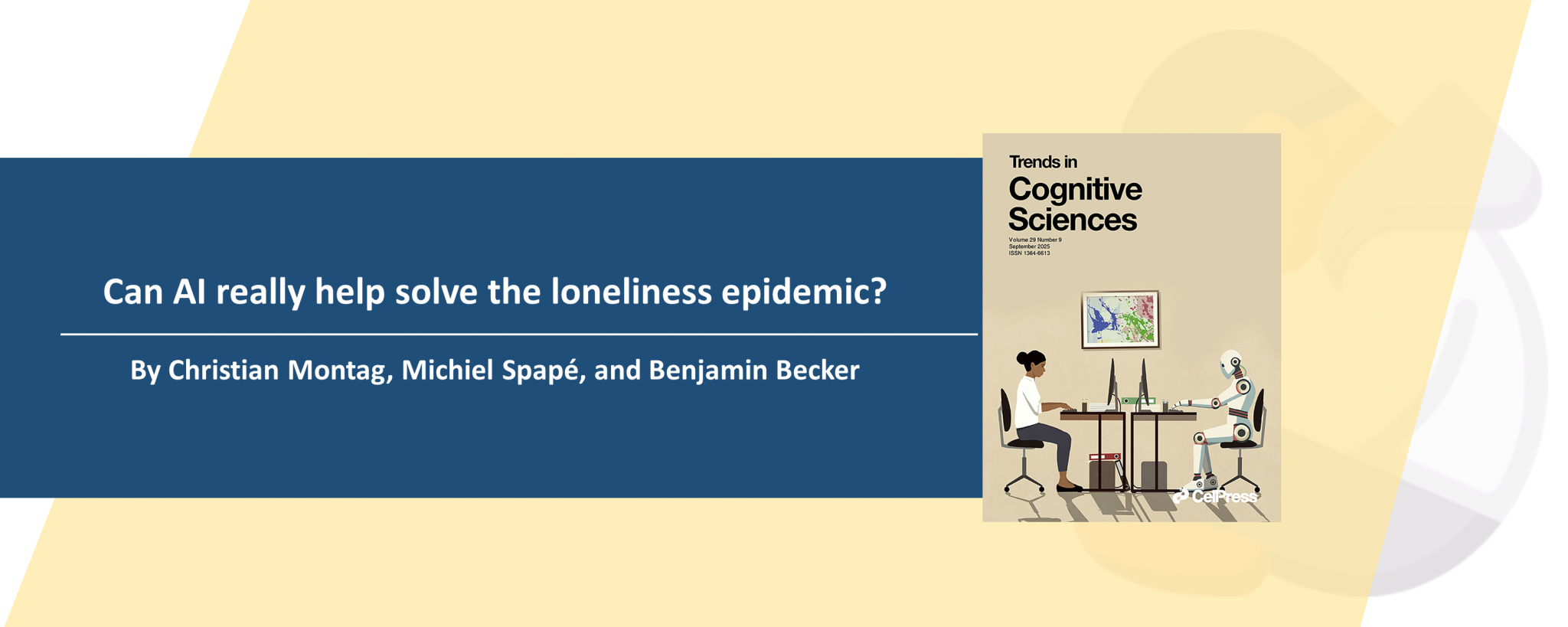According to the World Health Organization loneliness represents a global challenge affecting 1 in 6 persons worldwide. And, because loneliness comes with heightened physical and mental health problems, this is a critical problem. Now, some scientific studies suggest interactions with AI-companions or chatbots are used by humans to replace friends or even psychotherapy.
This trend led Profs. Christian Montag & Michiel Spapé from the Centre of Cognitive and Brain Sciences at the UM Institute of Collaborative Innovation together with their colleague Prof. Benjamin Becker from Hong Kong University to take a deeper look at the future risks and opportunities for AI. They used their insights from cognitive/affective neuroscience and explained how social touch is critical in making real human relationships satisfying and meaningful. Their analysis has been published now in the high-profile journal Trends in Cognitive Sciences (17.2 IF).
The lead author of the study Prof. Montag mentions: „If a person is lonely, they are longing for a physical presence of a close person. This is very hard to mimic with the available chatbots. Large language models operate mostly via text-communication. This clearly is not sufficient in providing lonely humans with the best cure available for loneliness, namely direct human support in presence.“
Further, the authors of the new paper pointed towards recent tragic incidences of people who committed suicide after having become over-reliant on AI-chatbots. “Clearly, AI-chatbots are at the moment no sustainable substitute for direct-human-interaction in times of despair”, Prof Spapé agrees. Still, the researchers do believe there is great potential of AI-technology for supporting humans in times of psychological crisis, especially if no human is available. They do, however, advocate for making the technology safer before it is used in this context and to remember our evolutionary heritage and what this means for our human, interpersonal needs. That carries with it a critical message for the wider society: impressive improvements in AI must not distract and replace investing in community building and human-human support.
Please click HERE for the paper.
*with icon from www.flaticon.com



